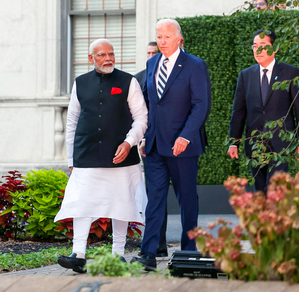North Korea now has a functional spy satellite, Pyongyang able to control it from ground station

Named the Malligyong-1, the satellite was launched into orbit in November last year, after two previous failed attempts.
North Korean state media claimed it had captured images of sensitive military and political sites in South Korea, the US, and elsewhere, although no imagery has been released. Despite efforts by independent radio trackers, no signals from the satellite have ever been detected.
A team of experts from the Delft University of Technology in the Netherlands, said in a recent blog post that the satellite’s manoeuvres from February 19th to 24th raised its perigee -which is the point in the orbit of a satellite at which it is nearest to the Earth – from 488 km to 497 kms, confirm its operational status and Pyongyang’s control over it.
While South Korea’s defence ministry also acknowledged the satellite’s presence in orbit, it refrained from providing further details. Defense Minister Shin Won-sik noted that the satellite had not displayed any signs of engaging in reconnaissance activities.
The unexpected orbit-raising manoeuvre, according to Langbroek, indicates the presence of an onboard propulsion system, a capability not seen in previous North Korean satellites. This capability allows North Korea to prolong the satellite’s operational life by adjusting its altitude to counter orbital decay.
Harvard astronomer Jonathan McDowell observed that the satellite appeared to be adjusting its position in space rather than posing a threat to other satellites, given its limited size.
North Korea, a country capable of conducting a nuclear strike and has been actively developing ICBMs and missiles, has announced plans to launch three more spy satellites in 2024.
Only some of the major space powers like the US, India, Russia, and China have launched satellites that are capable of complex manoeuvres. Langbroek noted that satellite manoeuvres are often conducted for benign purposes, such as improving orbital positioning or avoiding space debris.





